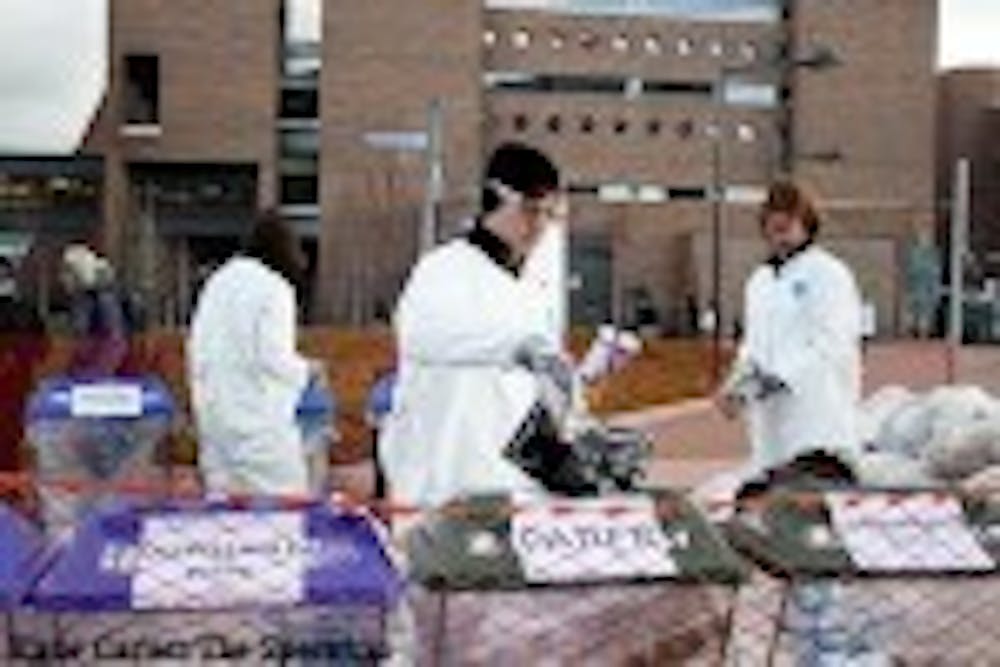A dumpster's contents were spewed onto the grounds of Founder's Plaza on Monday as part of a recycling demonstration that aimed to find hidden energy saving treasures that had been thrown away.
The temporary dumping ground was filled with volunteers donned in white Tyvek jumpsuits and dug into the landfill-bound bundles of trash.
In a small fenced-in area next to Capen Hall, students gathered over 20 volunteers separated the dumpster's contents into categories of recyclables including water bottles, deposit bottles, cans and paper.
During the two-hour demonstration, 26 large bags of garbage were separated.
"The point is to visually show people how much of what is thrown away every day could actually be diverted from the landfill," said Erin Moscati, a UB Green staff member.
Signs posted around the dumpster dive gave energy insight-like the fact that recycling just one aluminum can saves enough energy to run a TV for three hours.
According to Anne Marie Wells, a senior environmental sciences and nutrition major, about 60 percent of what was in the dumpster could have been recycled.
Moreover, she added that an additional 20 percent of the dumpster's content was "preventable trash," which Wells described as take-out containers that could have been spared if a reusable cup or container was utilized instead.
"We had a lot of fun, but at the same time it was frustrating because we couldn't believe what people were throwing away," Wells said.
Volunteers found such items as bags of blue copy paper and plastic bottles.
"The most disturbing part was the amount of paper we found. Contaminated paper could have been recycled if it wasn't in the trash," Wells said.
Watching on the sidelines, Brittany Cesar, a freshman American studies major, and Daniel Massey, a senior African American studies major, were impressed by the impact of the demonstration.
"This is reality right here," Cesar said. "We really don't think about the long-term effects of our consuming decisions."
Massey also stressed the future impact of present actions when it comes to recycling as a means of reducing the size of landfills.
Jordan Gerow, a senior economics and English major and president of the Environmental Network, broadcasted recycling and energy facts to students pouring off of buses in the Flint loop.
"We knew the recycling rate is low, but I never realized the majority of [what] we throw out is recyclables," Gerow said.
Gerow and other volunteers, including Raphael Rosenbaum, a junior environmental studies major and student representative for the Recycling Committee, are active members of environmental clubs on campus.
Rosenbaum commented on how UB Green has worked to increase student recycling and bring the issue to the forefront of students' minds.
"The amount of recycling we saw in the trash shows carelessness, but the difference those little in-the-moment decisions make is enormous," Rosenbaum said. "In fact they add up to a mountain of trash - just look at a landfill."
Rosenbaum added that there will be another recycling separation demonstration in the spring as well as other events like RecycleMania 2009, a competition to reduce and recycle waste on college and university campuses.





